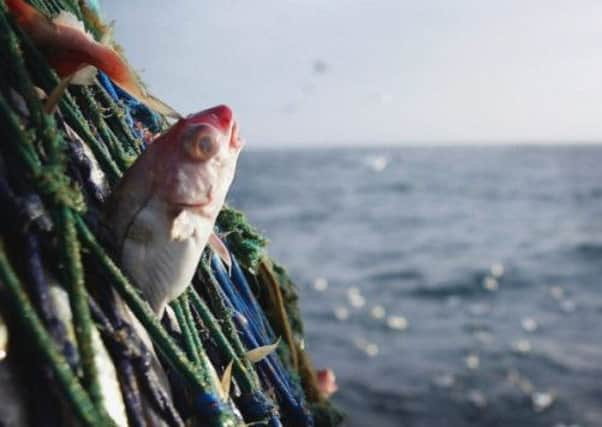Call for improved management of coastal fisheries


The Sustainable Inshore Fisheries Trust (SIFT) believes trawling and shell-fish dredging is harming the country’s coastal ecosystem.
They are seeking tougher sanctions on trawlers and dredgers operating inshore – including a three-mile limit – claiming fin-fish stocks of herring and cod in some areas, including the Clyde, had all but “collapsed”.
Advertisement
Hide AdAdvertisement
Hide AdThe trust, responding to the Scottish Government’s proposals on Inshore Fisheries Groups (IFGs), also believe recreational sea angling, traditional shellfish creeling and scallop diving were being impacted, as were wildlife tourism and recreational diving.
SIFT says its research shows that IFGs, which have responsibility for managing inshore waters, are lagging far behind their equivalents south of the border, both in terms of resources and overall remit.
But fishermens’ leaders – while agreeing IFGs were under-resourced – last night refuted claims of overfishing, claiming official statistics countered the accusation.
The coastline of mainland Scotland, together with its main islands, stretches to more than 11,500 miles, almost double that of mainland England and its main islands.
England’s network of ten Inshore Fisheries and Conservation Authorities (IFCAs) have a combined annual budget of over £8.6million, deploying over 40 vessels and with access to three Royal Navy offshore patrol vessels.
In comparison, SIFT says direct expenditure by Scotland’s IFGs is just £2m per year and they have access to two planes, the occasional rigid-hulled inflatable boat in summer and three mini frigates, two of which are used mainly for offshore enforcement.
SIFT director Charles Millar said: “There is little doubt that the management and compliance monitoring of Scotland’s inshore waters is being starved of resources and falls far behind the situation in England.
“In essence Scotland is trying to manage inshore fisheries that cover almost twice the length of England’s coast with less than 25% of the budget.
Advertisement
Hide AdAdvertisement
Hide Ad“The Scottish Government’s current review of the proposals of IFGs represents a great opportunity for Scotland to redress the balance and show its commitment to the sustainable management of our valuable coastal seas”.
He added: “We are concerned at the constitution of inshore fishery groups and believe the management has been neglected.
“Over-fishing and the use of fishing gears which damage habitats have not only been permitted but promoted.
“As a consequence the inshore ecosystem has been degraded and the valuable fin-fish stocks have collapsed to the point that coastal communities no longer enjoy a mixed and vibrant economy.”
He said the organisation was also concerned that the recent consultation on the IFGs was lacking in proposals that will have a positive impact on the marine environment and encourage the regeneration of inshore habitats and commercial fish stocks.
SIFT chairman Robert Younger added: “The IFG proposals focus on the short term commercial interests of the commercial shell fish industry.
“This is because the IFG’s are structured to favour the interests of the commercial trawling and dredging sector and therefore were never likely to produce management proposals that genuinely served the public interest.
“If coastal communities such as those on the Clyde are to have confidence in IFGs, then they and their constitutions must be adapted so that they manage inshore waters for the benefit of all stakeholders, not just the privileged few.
Advertisement
Hide AdAdvertisement
Hide Ad“We can learn much from the English IFCAs which are managed as a public resource by a cross section of the public. Scotland’s IFGs typically exclude everyone except commercial fishermen and they are dominated by the mobile fleet. This is no way to manage a public asset.”
SIFT claims the trawling and dredging fisheries continue to exercise undue influence over inshore fisheries policy, .
The organisation has in particular been focusing on the Firth of Clyde and claim that, since trawling and dredging were allowed into the close inshore waters from the 1960s, recreational sea angling had all but disappeared.
Mr Miller said that there had been extensive job losses in boat chartering, hospitality and tackle sales.
He added that the Firth was once a fin fishery of cod and herring, but claimed these had also collapsed.
He said: “We want an ecosystem which supports a sustainable, econimically-viable mixed fishery for everyone’s benefit.
“We want to restrict damaging forms of fishing, such as trawling and dredging, by creating separate zones for sustainable fishing methods such as creeling and angling.”
Archie McFarlane, secretary of Clyde Fishermens’ Association, said the history of IFGs was a political minefield, but agreed they have been under-resourced.
However, he categorically denied accusation of over-fishing, stating the figures were routinely monitored by Marine Scotland and showed this not to be true.